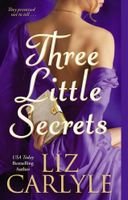I think I really need to look at my method for chosing books to buy, because I've recently realized I've been *almost* missing too many good books for my comfort. The latest is
The Dark Queen, by
Susan Carroll. I know I read the DIK AAR review of this book, but for some reason I didn't add it to my
wish list. Why didn't I? What was it that turned me off? I reread the review now and I've no idea. I only got interested in the whole thing after reading a blog post about the third book in the trilogy,
The Silver Rose, which sounded so good that I went back and bought the
ebook of book 1.
Since this is a trilogy which works best if you read all three books together, as I was lucky enough to do (in that sense, it was probably for the best that I only noticed it once the third book was already out), it felt appropriate to do one single review of the entire thing.
Book #1:
The Dark Queen
From Brittany's misty shores to the decadent splendor of Paris's royal court, one woman must fulfill her destiny–while facing the treacherous designs of Catherine de Medici, the dark queen.
She is Ariane, the Lady of Faire Isle, one of the Cheney sisters, renowned for their mystical skills and for keeping the isle secure and prosperous. But this is a time when women of ability are deemed sorceresses, when Renaissance France is torn by ruthless political intrigues, and all are held in thrall to the sinister ambitions of Queen Catherine de Medici. Then a wounded stranger arrives on Faire Isle, bearing a secret the Dark Queen will do everything in her power to possess. The only person Ariane can turn to is the comte de Renard, a nobleman with fiery determination and a past as mysterious as his own unusual gifts.
Riveting, vibrant, and breathtaking, The Dark Queen follows Ariane and Renard as they risk everything to prevent the fulfillment of a dreadful prophecy–even if they must tempt fate and their own passions.
Book #2:
The Courtesan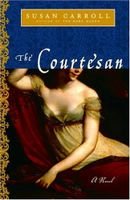
Skilled in passion, artful in deception, and driven by betrayal, she is the glittering center of the royal court-but the most desired woman of Renaissance France will draw the wrath of a dangerous adversary.
Paris, 1575. The consort of some of Europe's most influential men, Gabrielle Cheney is determined to secure her future by winning the heart of Henry, the Huguenot king of Navarre. As his mistress, Gabrielle hopes she might one day become the power behind the French throne. But her plans are jeopardized by Captain Nicolas Rémy, a devoted warrior whose love Gabrielle desires-and fears-above all. She will also incur the malevolence of the Dark Queen, Catherine de' Medici, whose spies and witch-hunters are legion, and who will summon the black arts to maintain her authority. With the lives of those she loves in peril, Gabrielle must rebel against her queen to fulfill a glorious destiny she has sacrificed everything to gain.
Alive with vivid period detail and characters as vibrant as they are memorable, The Courtesan is a sweeping historical tale of dangerous intrigues, deep treachery, and one woman's unshakable resolve to honor her heart.
Book #3:
The Silver Rose
From Brittany's fog-shrouded forests to the elegant dark heart of Paris's royal court, one woman must challenge a country's destiny - and her own dangerous fate.
France, 1585. She is the youngest and most powerful of the “Sisters of Faire Isle,” women known far and wide for their extraordinary mystical abilities. Skilled in healing and able to forecast the future of those around her, Miri Cheney has returned to her ancestral home to take refuge from a land devastated by civil war - and to grieve for her family, driven to exile. But she cannot hide from the formidable new power threatening to seize control of France from the dread “Dark Queen,” Catherine de Medici - a diabolical woman known only as the Silver Rose. Miri has no choice but to turn to the one man she distrusts as much as she desires: Simon Aristide, the charismatic witch-finder who is now himself the hunted, and who has reluctantly made an unholy pact with Catherine. Miri must defy throne and family to save all that she loves most - and command a future greater than she could ever imagine.
Vibrant with stunning historical detail, alive with characters as richly passionate as they are compelling, The Silver Rose is a sweeping, exquisitely wrought tale from a mesmerizing storyteller.
Is Susan Carroll that author people would periodically ask about in message boards, wanting to know when she was going to publish another book? If so, I totally understand now why everyone would be so anxious to know. If her previous books are half as good as this trilogy, I'm not surprised the people who read them were so persistent in wanting to know if there were any more books coming up. I'd rate the trilogy an
A-.
The Dark Queen,
The Courtesan and
The Silver Rose cover 13 years in the lives of the three Cheney sisters in late 16th century France (even though each book covers a much shorter period). It's a time of great turmoil, with the ambitious Catherine of Medici pulling strings at court and religious problems wracking the country. It's also a world in which magic is real, and Evangeline Cheney, the girls' late mother, was one of the most powerful "wise women" in the land, the lady of Faire Isle. But Catherine of Medici is just as powerful, though her magic tends to the darker side, and she is willing to go to any lengths, even using the services of the feared witch-huntes, to cement her power.
As the trilogy starts, it's 1572 and Evangeline has recently died, and the Chevalier Louis Cheney, her husband, has been gone on a voyage of exploration to the New World for a long time. Such a long time, in fact, that it's becoming more and more probable that he won't be coming back at all. With all this, the sisters are in a difficult position, especially Ariane, who doesn't feel at all ready to take on her mother's role of leadership.
I'm not going to go into details about the plots of each book, because it's really much better to discover things as the stories unfold, but I'll just say that right during the first book, we get all the protagonists in position.
There's Ariane, who's so much more capable and powerful than she knows, and who really comes into her own in her role as the new lady of Faire Isle, and who must learn that she can love without surrendering her magic.
There's the Comte de Renard, Justice Deauxville, who persistently pursues Ariane by any means, including magic rings which allow her to summon him whenever she wants (after three summons, however, she must consent to marry him), and who ultimately must decide if he really does want her to be his by
any means.
There's the middle sister Gabrielle, whom a terrifying experience with a man has made determined to make her way in the world and acquire power and money however she can. And she feels that since all her worth is in her beauty, becoming a courtesan would be the most expedient path she could take, even if a certain Huguenot soldier makes her feel things she shouldn't feel.
There's Nicolas Remy, a wounded Huguenot bringing possible proof of Catherine of Medici's crimes to Ariane, to ask for her help. The serious, solemn soldier will have to reconcile his duty and loyalty to his king with his complete fascination with the beautiful Gabrielle.
There's little Miri, the fey, ethereal young girl who talks to animals and who might just be a bit too trusting and forgiving.
And there's Simon Aristide, the young witch-hunter apprentice, whose determination to get revenge against witches for the murder of his entire family makes it barely bearable for him to betray the sweet Miri, in order to achieve his purposes.
These wonderful, three-dimensional characters' stories are told against a fascinating, rich historical canvas, in which the events of the time play a very real part in their fates. Carroll writes with great assurance, and the history never, ever gets too dry.
I think
The Dark Queen, book 1, was my favourite. I'd rate it an
A-. I absolutely adored the romance between Ariane and Renard. She's a sensible,
interesting woman, and he's the perfect type of alpha: one who's protective but, at the same time, has nothing but respect for the abilities and work of the woman he loves.
The plot, with its events leading up to a certain very important and tragic day in history (which anyone who's interested in history will probably know is coming up as soon as a certain royal wedding is mentioned), is just perfect, and I really thought the "alternate history" explanation of the events of that day made more sense than that people would actually behave that way without the influence of some very dark magic. Too bad I can't believe that.
The only real negative for me in this first book was that I just wasn't too crazy about the whole eye-reading thing. It feels much too all-powerful to me... as if there are too few rules governing it. This is an element that is present in the other stories, as well, but it was most ever-present here.
The set-up of the following two books is flawlessly done. I've read a couple of books lately in which the sequel-baiting has been way too unsubtle and clumsy. Carroll does it perfectly. There
is quite a bit about Gabrielle and Remy (including a certain scene, in which they play at damsels and dragons, which is one of the most romantic I've read in ages) and about Miri and Simon, but it was relevant and felt as if it served other purposes than making us buy the following books.
Book 2,
The Courtesan, I'd rate a
B+. It was really good, but it did have a couple of elements that bothered me enough to make it my least favourite of the three.
The romance between Gabrielle and Remy was really sweet and romantic, and I appreciate that Carroll didn't cop out in making Gabby some kind of fake courtesan, or in making Remy her first client, or something like that. Gabrielle really was a courtesan, and she went into it with her eyes wide open. Yes, of course, it was all a product of her self-esteem problems stemming from the events in her past, but she makes her own choices. She's not blackmailed into it, she doesn't do it because she needs money for the little orphans, or any such cliché.
And I also liked how Nicolas deals with it, how Carroll acknowledges that a somewhat rigid, conservative Huguenot isn't going to take it in his stride that the woman he's put in a pedestal and adored for years turns out to be a courtesan. He does have problems with it, but he deals with them, and their relationship in the end is much more solid for that.
So what didn't I like? Well, I
hated the Cass storyline, mainly because I couldn't believe the cunning Gabrielle, whose survived for years in the treacherous French court, would be so STUPID as to trust the woman the way she does!
I also disliked that as we near the end of the book, too many things seemed to happen off-stage, as if Carroll had had to cut some pages to get to the required length. The thing about the book, the rift between Renard and Ariane... all resolved off-stage, and it felt anticlimactic.
Book 3,
The Silver Rose, is almost as good as
The Dark Queen. I'd rate them both an
A-, but I liked the former
a hair better.
The best thing about this book is the hero. Simon, who did some truly unforgivable things in the first two books, has now grown up. And with maturity comes some self-doubt. He now sees the possibility (in some cases, the certainty) that he might have been wrong, and some of the things he's done, like his deeds in Faire Isle or the way he behaved with Miri, weigh heavily on his mind. This is not the zealous, close-minded boy of the earlier books, but a tired, weary man, who wants nothing more than to rest already, even if it means dying. However, a new, grave danger; the emergence of a new "sect" of dark witches, the sisterhood of the Silver Rose, which might even threaten Miri, means he needs to keep going, at least for a while, and approach this young woman whom he expects will want nothing to do with him.
The romance between these two is just amazing. They've
both grown up, and while neither has lost their essence, what made them Simon and Miri, they've become more mature, interesting people.
My only problem with this book was that the ending felt a bit too rushed, and, like
RenéeW, I really get the feeling there's another story coming to give us final closure. A certain, supposedly drowned body that doesn't appear and a move abroad by two characters seem to suggest this. Unfortunately, Susan Carroll doesn't seem to have a website, so I have no info whatsoever about that. While having unanswered questions at the end of the first two books didn't bother me, because I had the rest of the trilogy ready, unanswered question with no idea about whether there'll be another book (and if so, no idea of when it's coming out), are quite annoying.
That's kind of minor, though. On the whole, I can't recommend this trilogy highly enough. These are books you can really sink into, with unforgettable characters and very romantic romance.








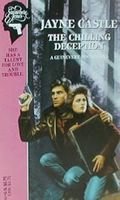
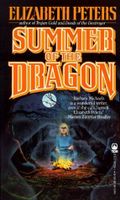

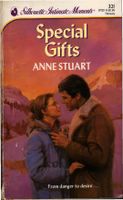
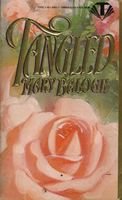
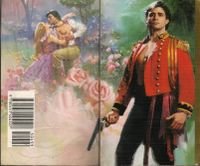
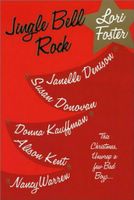 The
The 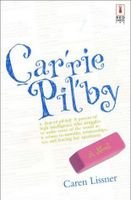
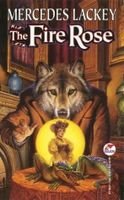 So I read my first
So I read my first 
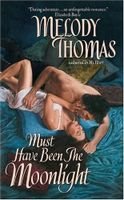 I've had
I've had 